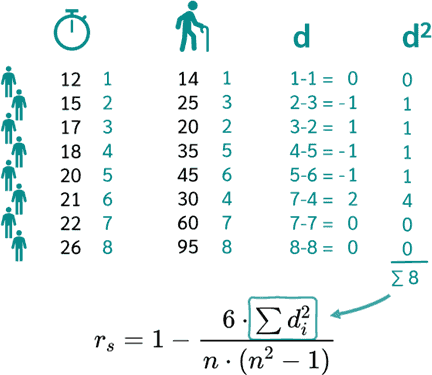Two-Way Analysis of Covariance (ANCOVA)
Two-Way Analysis of Covariance (ANCOVA)
ANCOVA is a statistical technique that extends the analysis of variance (ANOVA) by incorporating one or more continuous covariate variables. Covariates are variables that may affect the dependent variable but are not the main focus of the study.
Purpose:
To investigate the effect of two or more independent variables (factors) on a continuous dependent variable while controlling for the influence of covariate variables.
Assumptions:
Dependent variable is normally distributed.
Homogeneity of variances and covariances.
Linear relationships between dependent variable and covariates.
No multicollinearity among covariates.
Procedure:
1. Calculate the analysis of covariance model: This involves regressing the dependent variable on the covariates and creating adjusted means for the independent variables.
2. Test the significance of the independent variables: This is done by comparing the adjusted means and testing for differences between them.
3. Test the significance of the covariates: This is done by examining the F-statistic associated with the covariate variables.
Advantages:
Adjusts for baseline differences between groups, improving the accuracy of the analysis.
Controls confounding factors that may influence the dependent variable and bias the results.
Can identify covariates that explain a significant amount of variability in the dependent variable.
Limitations:
Requires a large sample size to ensure valid results.
Assumptions must be met for the analysis to be valid.
Can be complex to interpret if many covariates are included.
Applications:
ANCOVA is commonly used in areas such as:
Education: Comparing student performance while adjusting for prior knowledge or socio-economic status.
Medicine: Evaluating the effectiveness of treatments while controlling for factors like age or disease severity.
Psychology: Investigating the influence of independent variables on psychological outcomes while accounting for relevant personality traits.
Example 1: Evaluating the Effectiveness of Exercise Programs on Body Mass Index
Independent variables:
Exercise program (two groups: aerobic vs. strength training)
Time (measured in weeks)
Dependent variable: Body Mass Index (BMI)
Covariate: Age
Hypothesis: Both exercise programs will significantly reduce BMI over time, with the aerobic exercise program being more effective.
Example 2: Assessing the Impact of Smoking and Alcohol Consumption on Cardiovascular Health
Independent variables:
Smoking status (current smoker vs. non-smoker)
Alcohol consumption (low vs. moderate vs. heavy drinking)
Dependent variable: Cardiovascular health index (calculated from measures of blood pressure, cholesterol, and other factors)
Covariate: Age
Hypothesis: Smoking and heavy alcohol consumption will both negatively impact cardiovascular health, and the effect of smoking will be more pronounced than that of alcohol consumption.
Example 2: Two-Way Analysis of Covariance (ANCOVA) in a Medicine Trial
Objective: To determine the effects of two drug treatments (A and B) on blood pressure, while controlling for the influence of baseline blood pressure.
Design: Randomized, controlled clinical trial.
Participants: 240 patients with hypertension.
Procedure:
Patients were randomly assigned to receive treatment A or B.
Baseline blood pressure measurements were collected.
Patients received treatment for 12 weeks.
Blood pressure was measured again after 12 weeks.
Data:
| Group | Baseline Blood Pressure (mmHg) | Post-Treatment Blood Pressure (mmHg) |
|---|---|---|
| A | 140 | 130 |
| A | 145 | 135 |
| ... | ... | ... |
| B | 150 | 140 |
| B | 155 | 145 |
| ... | ... | ... |
Analysis:
ANCOVA was used to analyze the data. The model included the following factors:
Treatment (A or B)
Baseline blood pressure (covariate)
Results:
The ANCOVA revealed a significant main effect of treatment (F = 8.9, p = 0.003). Treatment A was associated with a greater reduction in blood pressure compared to Treatment B.
The covariate, baseline blood pressure, was also significant (F = 21.4, p < 0.001), indicating that patients with higher baseline blood pressure had higher post-treatment blood pressure.
Interpretation:
The ANCOVA results showed that Treatment A was more effective in reducing blood pressure than Treatment B, even after adjusting for the influence of baseline blood pressure. This suggests that Treatment A is a more potent antihypertensive agent.
......................................................................................................
👉 For the data analysis, please go to my Youtube(Ads) channel to Watch Video (Video Link) in
Youtube Channel (Channel Link) and Download(Ads) video.
💗 Thanks to Subscribe(channel) and Click(channel) on bell 🔔 to get more videos!💗!!
- Tell: (+855) - 96 810 0024
- Telegram: https://t.me/sokchea_yann
- Facebook Page: https://www.facebook.com/CambodiaBiostatistics/
- TikTok: https://www.tiktok.com/@sokcheayann999
- STATA for dataset restructuring, descriptive and analytical data analysis
- SPSS for dataset restructuring, data entry, data check, descriptive, and analytical data analysis
- Epi-Info for building questionnaires, data check, data entry, descriptive, and analytical data analysis
- Epidata-Analysis for dataset restructuring, descriptive and analytical data analysis
- Epi-Collect for building questionnaires, remote data entry, mapping, and data visualization
- Epidata-Entry for building questionnaires, data check, data entry, and data validation
ABA Account-holder name: Sokchea YAN
ABA Account number: 002 996 999
ABA QR Code:
or tap on link below to send payment:
https://pay.ababank.com/iT3dMbNKCJhp7Hgz6
✌ Have a nice day!!! 💞



.png)



Comments
Post a Comment